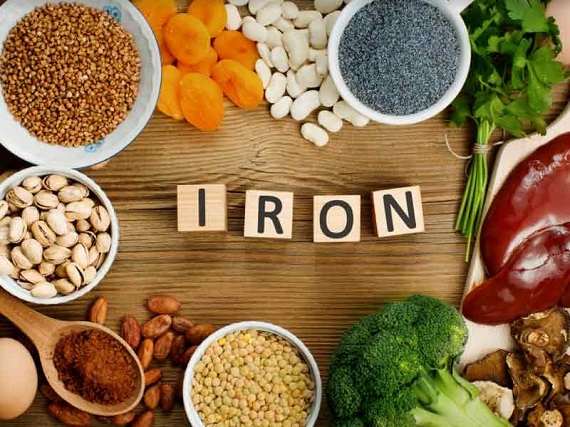According to the Nigerian journal of medicine, the annual prevalence of all types of skin infections increased from 6.9 percent in 2009 to 7.4 percent in 2015. The average annual prevalence was 7.1 percent.
Iron, on the other hand, is a mineral, and its main purpose is to carry oxygen in the hemoglobin of red blood cells throughout the body so cells can produce energy.
Iron helps eliminate fatigue, supports the immune system, improves muscle strength, and prevents anemia.
Anemia is a condition that develops when your blood lacks enough healthy red blood cells or hemoglobin. Hemoglobin is the main part of red blood cells and binds oxygen.
The World Health Organization (WHO) statistics showed that anemia affects around 1.62 billion people worldwide.
Findings reported on Plos Journal, explained how researchers embarked on a study to uncover the impact of both low and high iron levels. They analyzed the role of iron in a variety of health conditions, using genetic and clinical data from about 500,000 people in the UK Biobank.
UK Biobank is a large long-term biobank study in the United Kingdom which is investigating the respective contributions of genetic predisposition and environmental exposure to the development of the disease.
Dr Beben Benyamin, co-lead study author, a geneticist at the University of South Australia (UniSA) in Adelaide, explained that he and his colleagues used a statistical method called Mendelian randomization that employs genetic data to better estimate the causal effect of iron status on 900 diseases and conditions.
He added that through this method, they found a link between excess iron and a reduced risk of high cholesterol.”
The positive effects of iron are well documented. Another study led by UniSA found that high iron levels protect against anemia and prevent high cholesterol.
“This could be significant given that raised cholesterol is a major factor in cardiovascular disease and stroke, causing around 2.6 million deaths each year according to the [WHO],” says Dr Benyamin.
In contrast, not many studies have investigated the negative effects of excess iron, which can cause liver disease, heart problems, and sometimes diabetes. High iron levels may also lead to a higher risk of bacterial skin infections, such as cellulitis (a bacterial infection that affects the inner layers of the skin) and abscesses.
Previous research has shown that iron is an important nutrient for the survival and growth of bacteria, but this global study is the first to use large-scale population data to further investigate the link between high iron levels and bacterial skin infections.
Co-lead author Dipender Gill, from Imperial College London, added that this global study was able to “rapidly and efficiently determine the effect of genetically raised iron status on hundreds of clinically relevant outcomes using data that has already been captured.”
The study confirmed iron’s ability to protect against anemia, and it showed that this mineral may also reduce the risk of high cholesterol.
However, it also revealed that high iron levels can cause skin infections. Previous trials manipulated iron status in people with anemia, but to date, none of these studies focused on iron levels to manage skin infections or regulate cholesterol.
The researchers believe that they needed trial data before attempting iron manipulation for these conditions.

 A worldwide study conducted by scientists from Imperial College London, United Kingdom and the University of Ioannina in Greece has recently linked too much iron to high risk of bacterial skin diseases.
A worldwide study conducted by scientists from Imperial College London, United Kingdom and the University of Ioannina in Greece has recently linked too much iron to high risk of bacterial skin diseases.




